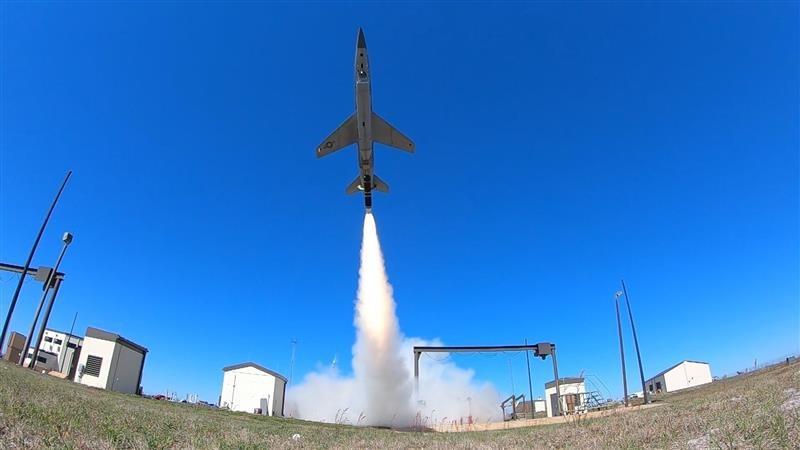
Credit: USAF
A tactical unmanned aircraft system (UAS) has flown for the first time with the Skyborg Autonomy Control System (ACS) developed by the U.S. Air Force to provide the artificial intelligence “brains” of a future fleet of low-cost, unmanned fighter-bombers. A Kratos UTAP-22 Mako UAS flew a 2-hr., 10...
Subscription Required
This content requires a subscription to one of the Aviation Week Intelligence Network (AWIN) bundles.
Schedule a demo today to find out how you can access this content and similar content related to your area of the global aviation industry.
Already an AWIN subscriber? Login
Did you know? Aviation Week has won top honors multiple times in the Jesse H. Neal National Business Journalism Awards, the business-to-business media equivalent of the Pulitzer Prizes.





